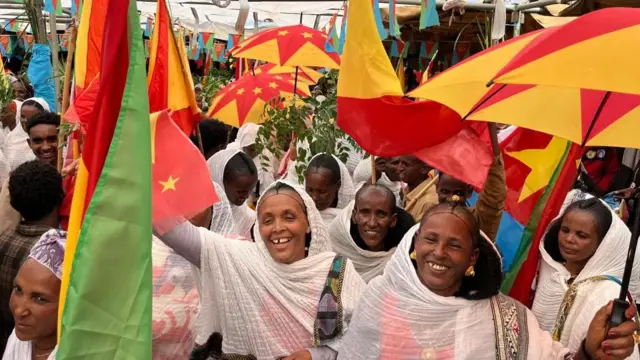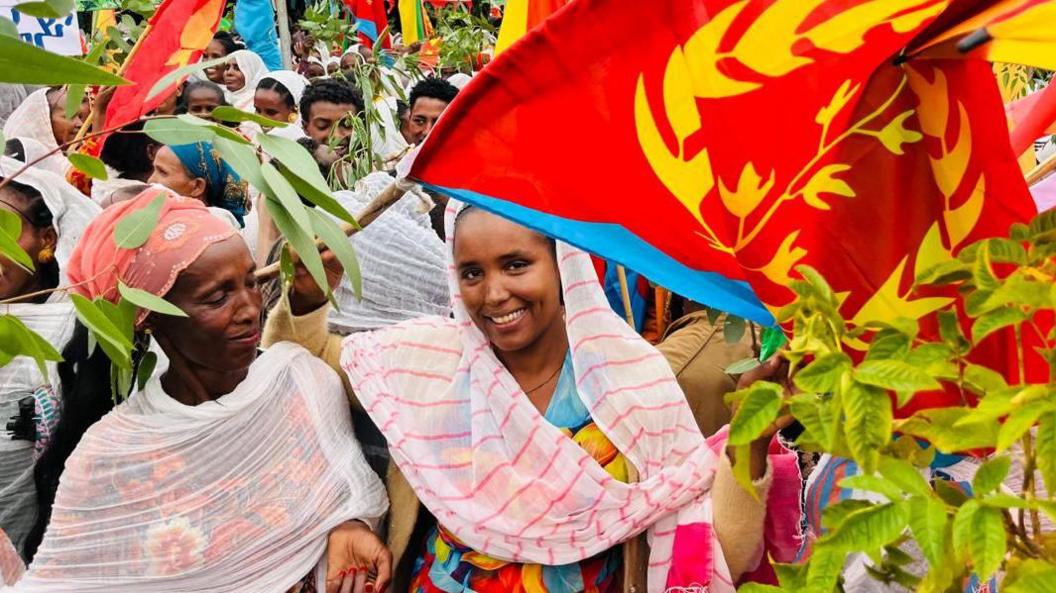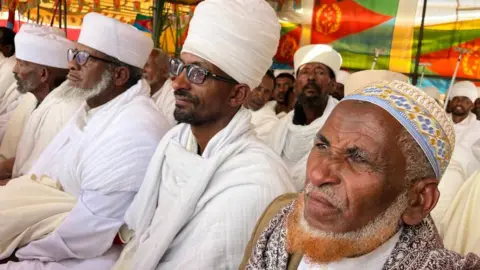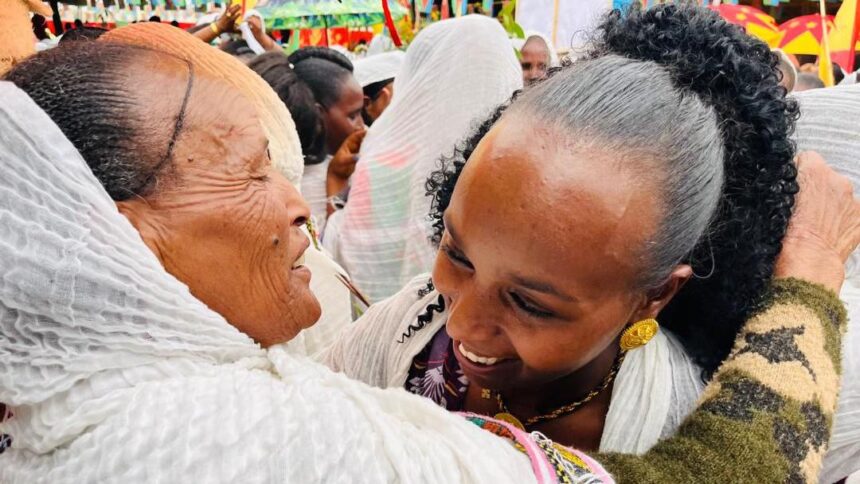Introduction
In a rare and emotional moment of hope, families from Ethiopia Eritrea border reopening were reunited on Sunday at the Zalambessa border, marking the first such gathering in five years. The closed border, a lingering consequence of the conflict in Ethiopia’s northern Tigray region, was opened unofficially by local activists and elders, giving families the chance to embrace once more despite continuing political tensions.
Five Years of Separation End in Emotional Reunions

The 2020 conflict in Tigray not only devastated the region but also isolated communities on both sides of the heavily militarized border. Ethiopia Eritrea border reopening Sunday’s event, organized without formal government approval but reportedly with quiet support from local Tigrayan and Eritrean officials, brought together hundreds of relatives separated since the outbreak of war.
“Enough of the past, let’s sit at the table of peace and build a better future,” the gathered crowds chanted as families wept, hugged, and celebrated the long-overdue reunion.
Cross-Border Trade and Community Revival
Alongside the emotional reunions, cross-border trade has begun to resume. Residents are now using both Ethiopian and Eritrean currencies, Ethiopia Eritrea border reopening signaling a tentative return to normal life. “As people, we want to eat, trade and attend social events as before,” said one Tigrayan woman. “What we need is peace.”
However, Zalambessa’s local infrastructure remains in ruins. Electricity, telecommunications, and banking services, largely under the Ethiopian federal government’s control, are still non-functional. Many displaced families continue to live in refugee camps, such as the one in Adigrat, 30km south of Zalambessa, where over 55,000 people remain reliant on aid and relatives for survival.
A History of Tense Relations

The border between Ethiopia and Eritrea has a complex history. After Eritrea’s independence from Ethiopia over 30 years ago, relations remained fraught. In 2018, the two nations signed a historic peace agreement under Ethiopian Prime Minister Abiy Ahmed and Eritrean President Isaias Afwerki, leading to the Nobel Peace Prize for Abiy.
But the eruption of the Tigray war in November 2020 derailed progress. Since then, relations have remained tense, with the border effectively closed until this grassroots-driven reopening.
Community Leaders Play Key Role
Religious leaders, village elders, Ethiopia Eritrea border reopening and community activists were instrumental in arranging Sunday’s symbolic event. The peaceful gathering took place under their watchful eyes, as they prayed for lasting reconciliation and stability.
“I am confident that the peace and reconciliation we started today will continue to grow,” said Nebiat Woldegergis, who traveled from Senafe, Eritrea to attend.
Displaced Families Begin to Return
Among those returning to Zalambessa was Amleset, a mother who had spent five years in a refugee camp after fleeing the town. “Today I came to see my locked house. From now on, I will return with my children and continue living on my land,” she told the BBC.
While some families are eager to rebuild, thousands still face daunting challenges. Looted property, destroyed homes, and absent services make resettlement a slow and difficult process. Infrastructure rebuilding will require significant investment, much of which remains uncertain given the ongoing political stalemate between the two governments.
Will This Spark Wider Reconciliation?

Though the local initiative is a powerful symbol of peace, it remains unclear whether this border reopening will lead to broader reconciliation at the national level. Both governments remain officially distant, with no comprehensive agreement to normalize relations fully.
Still, for the reunited families in Zalambessa, Sunday was a powerful step forward. Their calls for peace echo the hopes of many others across the Horn of Africa who continue to suffer the long-term consequences of war.
Conclusion
While the journey toward lasting peace between Ethiopia and Eritrea remains fraught with political and logistical challenges, grassroots efforts like Sunday’s Zalambessa reunion offer a glimmer of hope. For families who have lived through displacement, violence, and loss, even small moments of unity provide powerful motivation to rebuild their lives and communities.
Stay updated on Horn of Africa Peace Developments.
External References
Image










